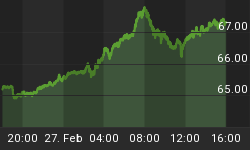This week, with the nation's financial infrastructure crumbling before our very eyes, the nation's top two economic policy makers made their way to the Congress for an extraordinary episode of political theater. Fannie Mae and Freddie Mac, the quasi-government entities that form the backbone of America's gargantuan mortgage market, appeared to be cracking. To the somewhat bewildered members of Congress, Ben Bernanke and Henry Paulson offered radical remedies to save the lenders. Despite the fact that the proposed policies would thoroughly redefine America's supposedly capitalistic pedigree, the moves were presented as wholly inevitable, and in the end, benevolent and costless.
If you are looking for a new chapter in American history, it has just begun.
The most memorable moment in the episode came when Secretary Paulson explained that the best way to minimize the chances that Fannie Mae and Freddie Mac will need a government bailout would be for Congress to grant the Treasury unlimited authority to lend to the two institutions. His analogy: When the bad guys see a bazooka on your hip, you are less likely to be challenged to a gunfight.
At its heart Paulson's argument assumes the GSE's problems are simply a function of confidence. He believes that if the U.S. Treasury signals that it will stand behind both firms to the bitter end, then investors would have no reluctance in buying their bonds. But assuring that creditors will be repaid (albeit with cheaper dollars) does nothing to address the root cause of the problem, which is that both firms are losing money on their loan portfolios, and on the loans that they insure. Paulson's plan actually assures that Fannie and Freddie's losses will be even larger, and puts American taxpayers, or more precisely wage earners and savers, directly on the hook. The longer these two entities remain in business, the more bad loans they will buy or insure, and the more money taxpayers will lose.
In theory, Fannie and Freddie were originally created to help provide affordable housing. In reality, like all government programs, they achieved the opposite. Rather than making houses more affordable, they merely enabled buyers to overpay for them. The result is that American homeowners are now saddled with staggering amounts of debt, as easy credit made it possible for buyers to bid prices to dazzling heights. So while a record number of Americans now own homes, they have bankrupted themselves in the process.
Without the help of Fannie and Freddie, and now the full faith and credit of the United States, American home buyers would be facing much steeper mortgage interest rates. This is particularly true given that our ability to borrow is now dependent on access to the global savings pool. Without the implicit, and now explicit, government guarantee, foreigners would be much less willing to extend cheap credit to Americans. If we had to rely solely on our shallow domestic savings pool and individual credit worthiness alone, rates would be significantly higher. Since home prices are a function of the ability of buyers to pay, higher interest rates would mean lower prices, thus making houses themselves more affordable.
Even the tax deductibility of mortgage interest has achieved a similar result. By subsidizing home buying, and encouraging renters to become buyers instead, the government has artificially increased demand for houses, causing prices to rise. In the end, the benefits of the mortgage tax deductions are limited to those who benefit from inflated home prices. This includes realtors, who earn higher commissions, governments that collect higher property taxes, and those who owned their homes prior to the loophole being enacted who cashed in on the gains.
At present, the best the government can do for housing and the economy is to leave both alone, cease interference in the free market, restore sound money, and allow capitalism to work.
Unfortunately, the laws of capitalism are now demanding that home prices continue to fall precipitously. But, based on the speed in which our government, public and financial institutions are willing to abandoned free market principals at the first whiff of economic pain, the likelihood that this impulse will take hold is increasingly remote. So hunker down as the United States finds itself on the express track to state socialism with Paulson's Bazooka locked, loaded and pointed right at us. When the government pulls the trigger the blast will blow the dollar, and what's left of our capitalist economy, to smithereens.
For a more in depth analysis of our financial problems and the inherent dangers they pose for the U.S. economy and U.S. dollar denominated investments, read Peter Schiff's book "Crash Proof: How to Profit from the Coming Economic Collapse." Click here to order a copy today.
More importantly, don't wait for reality to set in. Protect your wealth and preserve your purchasing power before it's too late. Discover the best way to buy gold at www.goldyoucanfold.com, download our free research report on the powerful case for investing in foreign equities available at www.researchreportone.com, and subscribe to our free, on-line investment newsletter at http://www.europac.net/newsletter/newsletter.asp.















